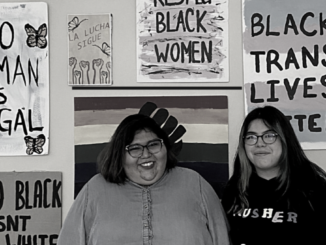
By Gina Robledo
Book banning has now become a bigger issue around the world and many people are upset.
It is known as a method involving the restriction of some books from libraries, schools, or other public spaces.
Some argue that book banning is necessary because it limits the spread of ideas that they see as harmful. Others see banning as limitations or threats to freedom of expression.
In Illinois, the legislation passed to protect the freedom of libraries in acquiring books without limitations.
At Dominican, students and staff are open to having access to all books with no limitations because they believe every person has the right to read freely. The librarians are also prepared to fight back against attempts of censorship for books.
Genesis Alvarez, a student advisor at Rebecca Crown Library, said she thinks students should be able to read what they want without censorship.
“I feel that older generations exclude books for new generations. The exclusion does not allow us to practice our freedom of speech,” said Alvarez. “We should read what we want without putting boundaries. Also, it limits our knowledge of today’s culture.”
Today, books are banned due to explicit or violent content. However, the books that are becoming banned or censored are books related to race, religion, sexuality, Indigenous people, and the LGBTQ+ community.
Don Hamerly, the director of Dominican’s School of Information Studies, explained how this issue will become worse if it is not addressed.
“Book banning is all over the country. It is nothing new and it has been going on for a long time, but it has gotten worse,” said Hamerly. “There seems to be a well-funded, conservative effort among groups to intentionally go into schools and libraries and disrupt the practice providing books and materials for people who want access to them.”
This situation mostly affects librarians, teachers, and people who enjoy reading books.
“Some people, who hold certain ideas about what others should and should not do, read, or practice, are sometimes grounded in religion, politics or conceited biases,” said Hamerly. “They think they can control what other people can do.”
Not all U.S. states defend the idea of banning books, specifically in conservative areas. Although, people are fighting to stop the banning of books since it goes against the beliefs of different groups.
“I am proud to be living in Illinois,” said Hamerly. “It is the only state in the country right now that has passed legislation to prevent book banning, but we will see what happens.”
Spreading awareness on this situation highlights that people coming together to fight back. It is morally wrong, and it goes against countless values for people.
Why limit resources that are not only learning methods for others, but also comfort methods as well. Helping others become educated on why this is wrong can help stop the spread of book banning in other states.




1 Trackback / Pingback
Comments are closed.